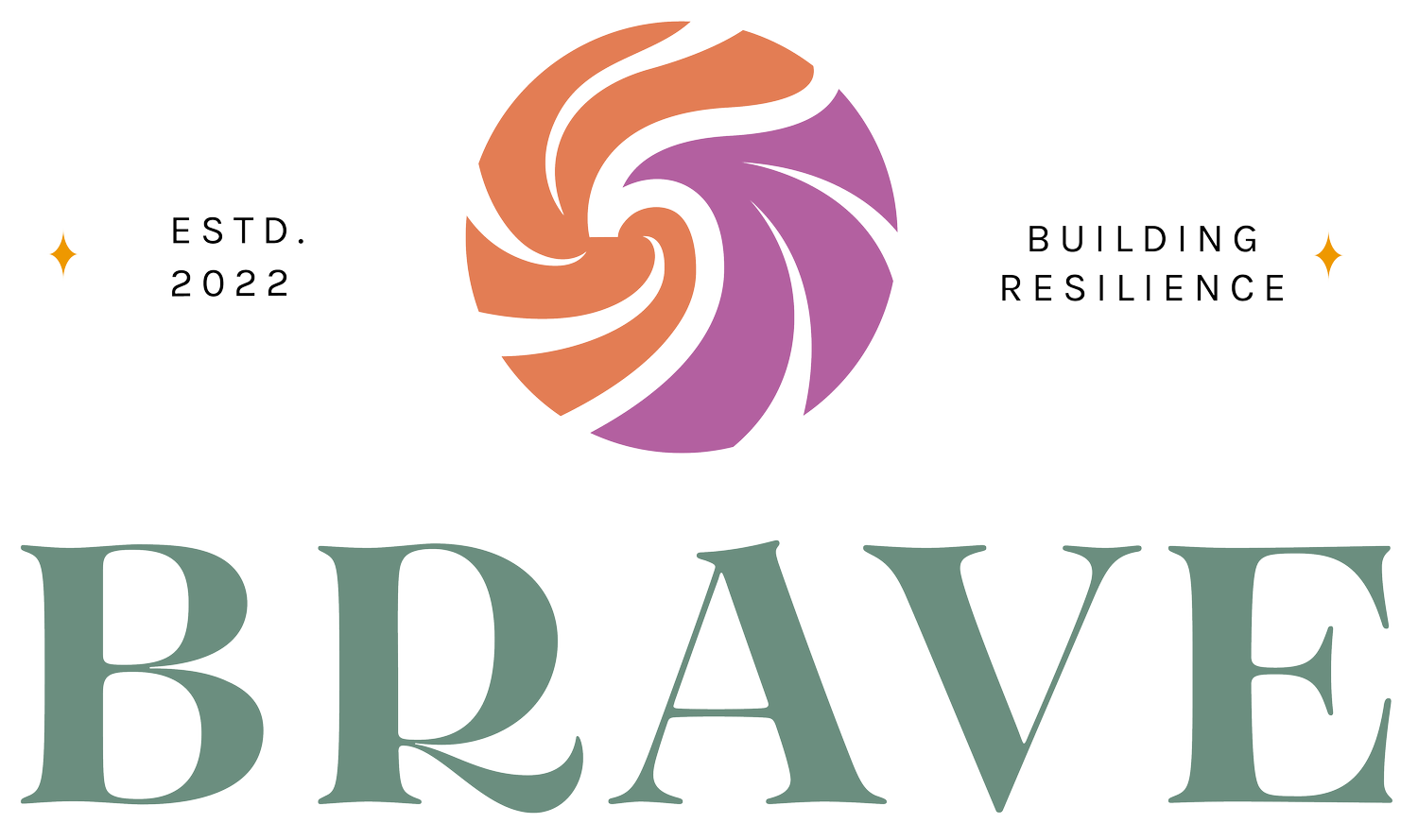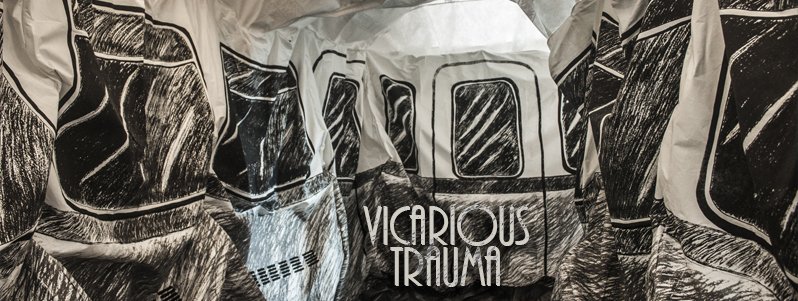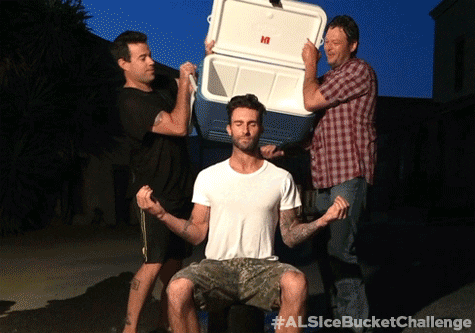Navigating the Emotional Rollercoaster: Understanding Vicarious Trauma, Compassion Fatigue, and Secondary Traumatic Stress
These are NOT the same thing
Differences between Vicarious Trauma, Compassion Fatigue, and Secondary Traumatic Stress
Whether you are a trauma therapist or not, you may have heard the terms Vicarious Trauma, Compassion Fatigue, and/or Secondary Traumatic Stress used in seemingly the same ways. That makes it seem like they are interchangeable but, news flash!
They’re not.
Each of these experiences are unique - they have their own distinct meanings and implications for people, whether they are trauma therapists, helpers/healers, or not.
Because this is a bit of a soapbox for me that I have never written about in my blog, I figured it was about time!
So let’s dive into the differences between Vicarious Trauma, Compassion Fatigue, and Secondary Traumatic Stress you will better understand how each may or may not impact you.
Oh, and I won’t leave you empty handed - there are some practical ways to cope with them at the end. 😉
Understanding the Terms
1. Vicarious Trauma: Exclusively for Helping Professionals
Stating that Vicarious Trauma is an experience exclusively for helping professionals is truly a hill I am willing to die on.
Vicarious Trauma occurs because, as helpers and healers, we are emphatically connected with our clients. That empathy acts as a sponge to soak up all the stress and trauma shared in our work.
THIS IS NOT A BAD THING.
It’s just the reality of one’s work as a trauma therapist, nurse, lawyer, or any other kind of helper/healer. It doesn’t always feel great, but it is not bad, and experiencing Vicarious Trauma does not mean you aren’t good enough, strong enough, fill in the blank enough.
One of the most profound impacts of Vicarious Trauma is how it changes our worldview - once you know about all the terrible shit that happens in this world, you can’t unknow it.
By Raluca Iancu, a Ruston artist
When we don’t have the tools and support we need to manage the natural experience of Vicarious Trauma, we can start to feel a sense of hopelessness, loss of purpose, or even feeling overwhelmed by the weight of our clients’ trauma histories.
2. Compassion Fatigue: The Consequence of Unmanaged Vicarious Trauma
Compassion Fatigue occurs when we do not have the tools and support we need and deserve to manage Vicarious Trauma in healthy ways because we end up exhausting our emotional and physical resources while caring for others.
Similar to Vicarious Trauma, Compassion Fatigue is exclusive to helping professionals.
When we are experiencing Compassion Fatigue, it feels like our cup is totally empty, we just have nothing left to give in our professional or personal lives.
Compassion Fatigue is often a close precursor to burnout, but it’s not unmanageable when we have the things we need as trauma therapists, helpers, and healers to keep doing the work we love.
3. Secondary Traumatic Stress: A Universal Experience
Unlike Vicarious Trauma and Compassion Fatigue, Secondary Traumatic Stress can affect anyone who is exposed to traumatic narratives or events, not just helping professionals. However, trauma therapists and helping professionals can and do develop Secondary Traumatic Stress as a result of their work if their experiences of Vicarious Trauma and Compassion Fatigue are not managed in healthy ways.
Secondary Traumatic Stress occurs when we indirectly experience the trauma of others, whether through social media, the news, or being told about someone else’s traumatic experiences.
STS can lead to symptoms similar to Posttraumatic Stress symptoms experienced by the primary survivors themselves. This can include things like intrusive thoughts, nightmares, and heightened anxiety.
Coping Strategies for Resilience:
Now that we have a clearer understanding of these terms, let's explore some adaptive coping skills that can help us manage and mitigate the impact of Vicarious Trauma, Compassion Fatigue, and Secondary Traumatic Stress.
Note that these skills are helpful for trauma therapists, helpers/healers, and people outside of helping professions too.
1. 54321 Grounding:
Grounding is the practice of coming back to the present moment. 54321 is a practice that helps you use your 5 senses to be in the present moment. It’s highly effective because you can’t smell anything from yesterday or hear anything from tomorrow! Your senses can only live in the present moment.
To practice 54321, you will engage your senses by identifying and naming:
5 things you can see,
4 things you can touch,
3 things you can hear,
2 things you can smell, and
1 thing you can taste.
Admittedly, in the moment, it can be difficult to remember helpful strategies so I encourage you to practice this regularly when you are not dysregulated.
Pro-tip - you can grab these amazing Lock Screen wallpapers for your phone, crafted specially by my friends at How We Get Thru, so you have a beautiful and regular reminder of this tool!
2. Breathing Techniques:
Breathing strategies are helpful because they counteract our body’s natural survival response to breathe quickly when we are stressed or feel under threat.
Practicing deep, intentional breathing to activate your body's relaxation response can be done by simply inhaling deeply through your nose, holding for a few seconds, and exhaling slowly through your mouth. Repeat this process several times to release tension and promote calmness.
Bonus points if you allow yourself to practice deep breathing strategies in nature - just like 54321, we need to practice this when we are regulated so we have the muscle memory we need when we’re triggered. Practicing in nature will lead to even deeper relaxation, teaching your brain and body how powerful this skill is!
3. Strong Sensory Experiences:
When we are triggered by things in our work as trauma therapists, helpers/healers, or by things on social media or in the news, our natural survival response (fight, flight, freeze, fawn) can kick in so quickly that we don’t even have time to use something like 54321 or deep breathing.
Once we realize we have been triggered, and that we are safe, our brain and body may need a very strong reminder that we’re ok. This could include taking a hot shower, dunking your hand in some ice water or holding onto an ice cube, grabbing a rock and squeezing it very tightly.
Other strong sensory experiences could include listening to uplifting music, savoring a delicious meal, or immersing yourself in a soothing bath.
By engaging in strong, and perhaps pleasant, sensory experiences you can redirect your attention away from the distressing emotions.
The Differences Matter:
As trauma therapists, helpers/healers, and simply as humans, it is crucial for us to understand the distinctions between Vicarious Trauma, Compassion Fatigue, and Secondary Traumatic Stress.
By recognizing and addressing these experiences, we can better support ourselves and our clients.
Understanding how Vicarious Trauma is different from, and can lead to, Compassion Fatigue and/or Secondary Traumatic Stress is actually quite empowering. Recognizing that anyone can experience Secondary Traumatic Stress is also important because it normalizes our human reactions to terrible things.
Remember, you are not alone in this journey. Reach out to your fellow colleagues and become part of a supportive community, like The BRAVE Trauma Therapist Collective, where you can be seen and heard by fellow clinicians who get it.
Together, we can transform the way we approach trauma therapy and continue doing the work we love while receiving the care we deserve.







